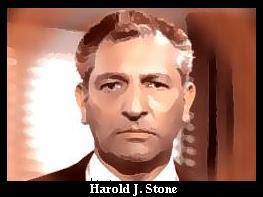There was a police car in front of a bar that I passed on my way home one recent night. There was also a police officer standing outside. As I walked past, he asked me where I was coming from.
“The library and the store,” I said.
I had two bags from the latter in my left hand, and I gently waved them as proof of my previous whereabouts. The officer seemed to find that satisfactory and he asked no further questions. I continued on my way, but wondered what motive he had for quizzing me. Had he received a report about suspicious behavior in the area? Had someone been assaulted or robbed in the bar?
It makes me a little nervous to be questioned by a police officer, no matter how pleasant his demeanor. This cop was agreeable enough, but what if my answer had not satisfied him? What if he needed one more arrest to meet his quota for the night? What if a drunken whore, having failed to incite the sexual interest of a male patron at the bar, wanted revenge against the entire male species and had falsely accused me of fondling whatever she wanted to have fondled?
I was falsely accused before.
It was the summer of 1971, and as I and two companions returned from downtown Cleveland on foot by way of the Detroit-Superior Bridge, we noticed two teenagers running in the opposite direction. We paid them no mind until we reached the center of the bridge, where a well-dressed man who reminded me of actor Harold J. Stone was loitering, smoking a fat cigar. I don’t remember if the police were already present or if they arrived later, but the man who would identify himself as Diamond Jim, the proprietor of a nightclub by that name in the Flats, soon accused me of having thrown a muffler over the bridge on to his Cadillac parked below. Of course, I didn’t do it, and neither did my two companions. Suddenly, I realized why those two kids we saw earlier had been running. One or both of them had done the dirty deed.
Diamond Jim didn’t care. His fancy car had been vandalized and he wanted to blame somebody – anybody – and I was the most convenient victim. I was a redhead. My two companions had dark hair and both wore glasses as I did not. I was the easiest to identify. I recall being quite passionate in my defense, but also a smart ass. When the police grilled me, my responses were tainted with anger. There was a question about my mother:
“Is she your real mother?”
“No,” I said, “she’s fake.”
As any viewer of Dragnet, NYPD Blue, or any dozen or so crime shows is aware, the police do not appreciate a smart-ass, especially if he’s only 14-years-old, and I was driven home in a patrol car. My bravado failed me once I got home. I burst into tears the minute I entered my house where my brother was the only one present at the time.
Nothing more came of the incident. The police did not follow up by investigating me further. Years later, however, fate, God, or something caught up with Diamond Jim.
I have to admit I’m a vindictive sort and I remember feeling a certain gratification when reading about Diamond Jim’s death in the newspaper. In 1985, he was remodeling his restaurant before the revitalization that briefly made the Flats, an area of Cleveland previously dominated by steel mills, into a center of nightlife. One day, someone entered Diamond Jim’s shuttered nightclub and forced him to lie down on the bathroom floor. He was then shot, point-blank, in the back of the head. A handyman was also murdered.
And just like that, no more cigars for Diamond Jim, and no more Cadillacs, and no more bearing false witness.
© 2013 Brian W. Fairbanks
VISIT MY KINDLE STORE AT AMAZON


Fantastic!
ReplyDeleteYou are a creep. the handyman was my Uncle and he did not deserve to die because you were blamed for dropping a muffler.
ReplyDeleteSorry about your uncle, but he was like me: in the wrong place at the wrong time. Diamond Jim is the creep here, not me.
ReplyDelete